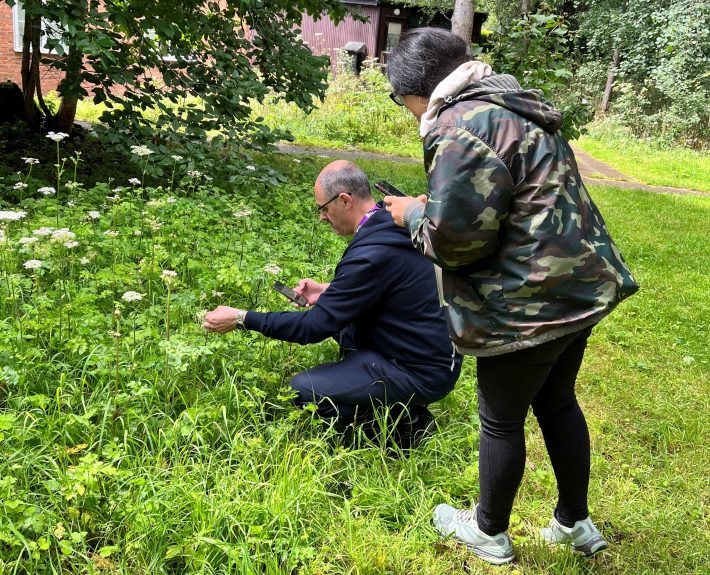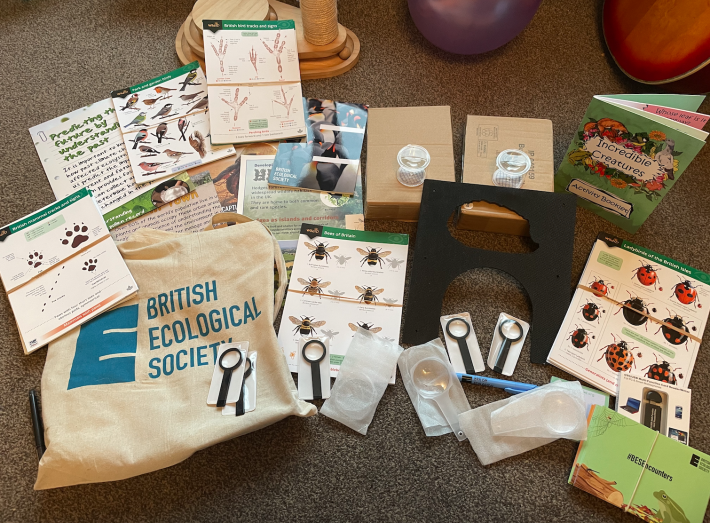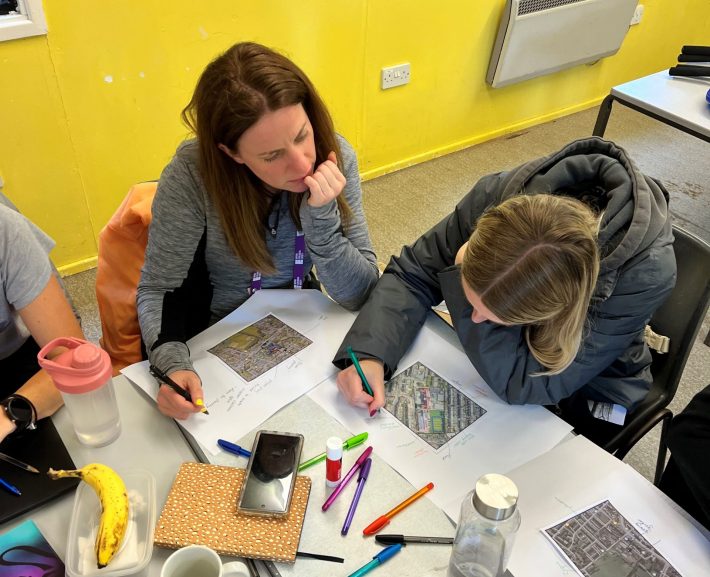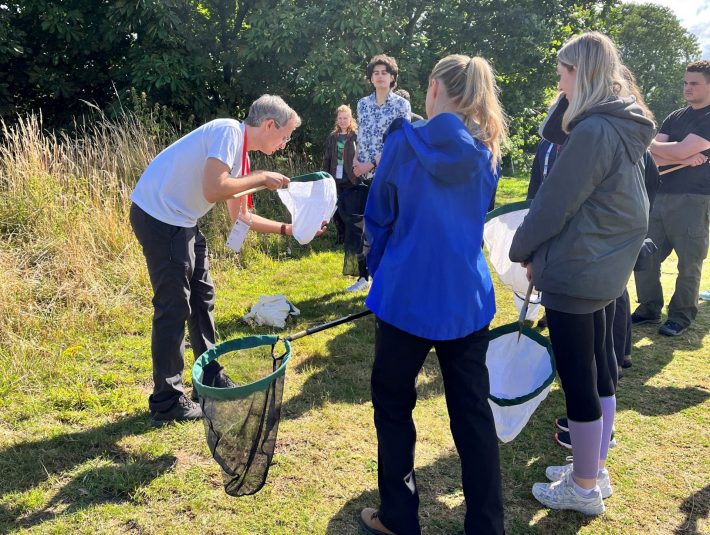Revitalising teachers’ passion for ecology: reflections from the BES teacher training day
This year the BES piloted a teacher training program which ran alongside the undergraduate summer school. Eight schools joined us at Preston Montford FSC for a day full of inspiring ecology with ideas and skills that they could take back to their classrooms. In this article, Rose Edmondson from Falinge Park School in Rochdale reflects on her experience of the day.

I was fortunate enough to come across an advert to attend a teacher training day focusing on bringing nature to life for secondary school teachers. Despite our school being near to the centre of Rochdale, we benefit from being located opposite a park as well as having a small orchard and garden area. The training seemed like an excellent opportunity to learn more about how to develop and use this space!
There was an excellent range of activities and workshops on offer to cater for every aspect of developing a love of nature regardless of your level of experience. This included a session linked to invertebrates in an orchard, how to get involved with citizen science, and possibly my favourite session of the day led by Sammy Mason on ‘UK Mammals’.
As well as the fantastic range of workshops, we had lots of opportunities for tea breaks which allowed us to network and share our ideas and expertise. Memorable moments of the sessions included accidentally coming across a hornets nest in a hole in a tree in the orchard, looking at photos captured overnight on the camera traps, and finding out more about what the new Natural History GCSE might have to offer our pupils.
Not only were we guided by experts on the day, we were also provided with a generous goody bag containing essentials as well as some pretty special kit to help us set up our nature projects and exploration upon our return to school.

I am ashamed to say that despite holding a biological sciences degree and being utterly fascinated with marine science at a young age, I actively avoided all modules linked to ecology when studying for my degree, being utterly obsessed with human biology and microbiology at the time.
For me it was discovering what plants could actually do, that they could communicate, that they interacted with their environment in a way that just hadn’t been brought to life or mentioned at all by any of my teachers before. Reading about plants captured my imagination and over the past 3 years I’ve been rediscovering the importance of nature and ecology through an array of projects set up at school.
Our school has a partnership with a local primary school to help them to develop their pond area, as well as loan out bio themed boxes to families so they can explore nature from home and to share these experiences with the wider community. We’ve also set up workshops and hope to make a tangible difference to climate change in the Rochdale area by propagating and replenishing sphagnum moss.
This is especially important to our pupils- realising that they have the power to get involved and influence change directly is incredibly beneficial and motivating for them- so much so that this year they are passionately setting up a nature club in school for the younger pupils.

My passion for nature has been cemented by attending Preston Montford for the day. Networking with others and being immersed in nature in such a fantastic setting just made me more determined to carry out our goals. Being fortunate enough to have a primary teacher attending the following day brought something unique to the table as we can now exchange ideas and develop and collaborate alongside each other.
For me, the session on mammals is what really made me think. Despite their size, and the interest that pupils have with mammals, how often are British mammals actually taught in our schools? How quick are we to seek to discuss mammals from another continent?
Discovering that scientists need more records of British wildlife made me more determined to set up our wildlife cameras, to contribute to citizen science projects, and to work alongside some local project groups to exchange and collate data. This is something which excites me as again, its tangible and so easy to get involved. Providing as many opportunities as possible to directly involve pupils with real life data collection in our local area is so incredibly important both within the curriculum and beyond.

I know our school will benefit from the training, not just because of the equipment we were given, but also because of the connections formed. We’re looking forward to being part of a larger ecological network through the BES and to share our camera trap data with the national MammalWeb project.
Back at school we’ll be using our new equipment, setting up a nature journaling club as well as inviting families to get involved in exploring nature, especially over the autumn and winter months. For me and my school, attending this training has completely revitalised our determination to shout from the rooftops just how vital it is that pupils appreciate how awe inspiring yet fragile ecosystems truly are!
Get involved
If you’re a teacher and would like to bring more nature into your school, be sure to join our teacher’s network for support and a space to share ideas.
Equipment for the teacher training day was funded by the Government’s Green Recovery Challenge Fund via the Connecting Schools to Nature legacy project. The fund was developed by Defra and its Arm’s-Length Bodies. It was delivered by The National Lottery Heritage Fund in partnership with Natural England and the Environment Agency.

Like what we stand for?
Support our mission and help develop the next generation of ecologists by donating to the British Ecological Society.